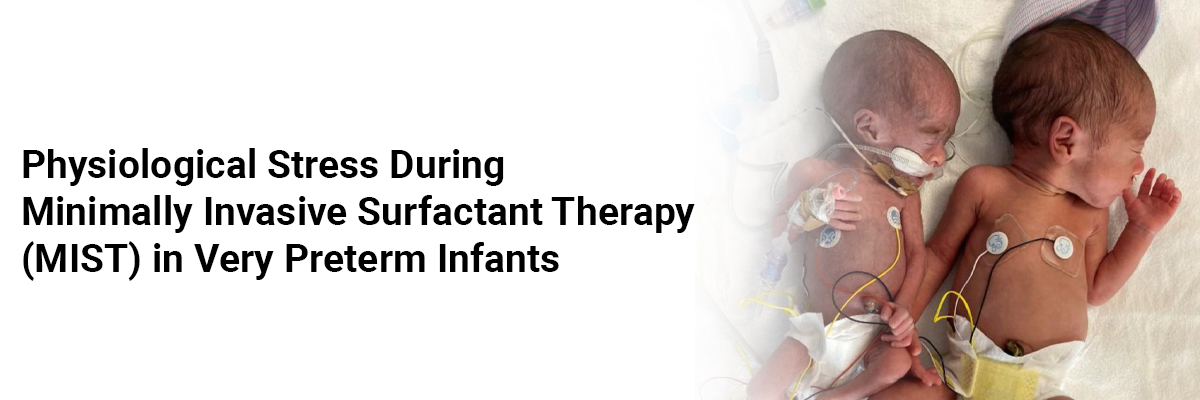
 IJCP Editorial Team
IJCP Editorial Team
Physiological Stress During Minimally Invasive Surfactant Therapy (MIST) in Very Preterm Infants
The goal of a prospective observational study was to assess pain and physiological stress in very preterm neonates undergoing minimally invasive surfactant therapy (MIST) in a tertiary Neonatal Intensive Care Unit (NICU). The Premature Infant Pain Profile-Revised (PIPP-R) score was used to evaluate pain levels before, during, and after MIST. Changes in heart rate and oxygen saturation were also recorded during the procedure.
Overall, 23 neonates received MIST. The mean PIPP-R score during MIST was 3.87 (before), 12.83 (during), and 6.26 (after) the procedure – with all differences being statistically significant. Additionally, heart rate and oxygen saturation decreased significantly during MIST.
In conclusion, the high PIPP-R scores observed during surfactant administration through MIST indicate that this procedure can cause moderate to severe pain/discomfort and significant physiological stress in very preterm infants.
The findings suggest the need for further research, including a large randomized controlled trial, to evaluate the potential benefits of sedation/analgesia in reducing pain and physiological stress during MIST, weighing these benefits against the potential risks of complications like respiratory depression and chest wall rigidity that may necessitate increased respiratory support during or after the procedure.
Source: Sawant T, Manerkar S, Patra S, Kalamdani P, Kalathingal T, Mondkar J. Indian Pediatrics. 2023 Jul;60(7):557-60.

IJCP Editorial Team
Comprising seasoned professionals and experts from the medical field, the IJCP editorial team is dedicated to delivering timely and accurate content and thriving to provide attention-grabbing information for the readers. What sets them apart are their diverse expertise, spanning academia, research, and clinical practice, and their dedication to upholding the highest standards of quality and integrity. With a wealth of experience and a commitment to excellence, the IJCP editorial team strives to provide valuable perspectives, the latest trends, and in-depth analyses across various medical domains, all in a way that keeps you interested and engaged.





















Please login to comment on this article